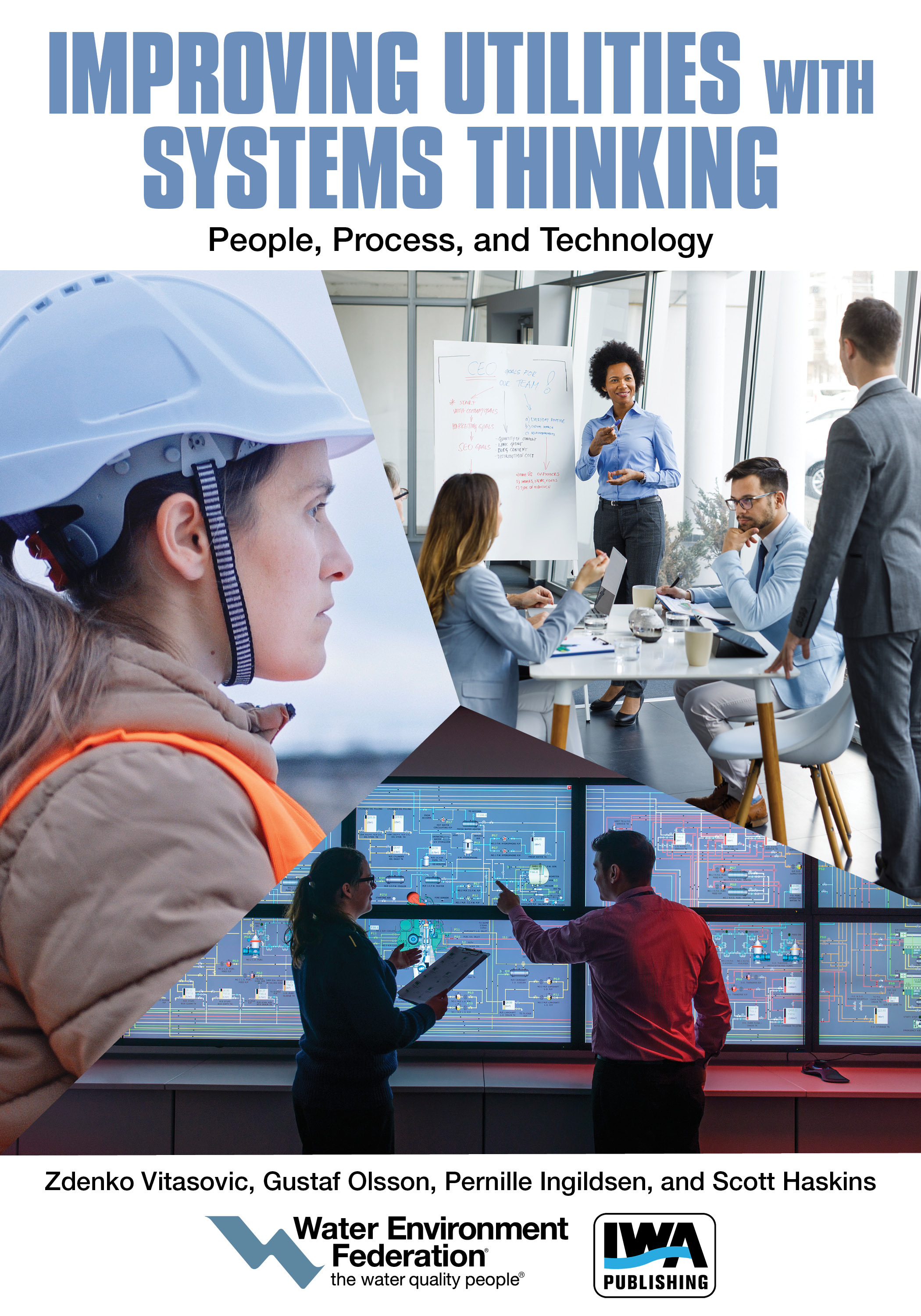Learn and apply a standard methodology for improving overall performance of water sector utilities with this new resource.
Improving Utilities with Systems Thinking: People, Process, and Technology is a tool for utility leaders to better understand how groups can work together to ensure better performance; value to the organization, community, and environment; coherence; and well-being of the utility through application of systems thinking and a methodology for improvement.
The authors examined the management of water sector utilities from a “systems thinking”, or holistic, point of view, starting with the complete system, then defining the components, considering the interactions between them, measuring key variables of value creation and impact, making adjustments, and learning. The overall goal is to establish a knowledge-based roadmap for improvement, including practical methodologies based on science and grounded in the real needs of water sector utilities.
A systems approach acknowledges that an integrated system has qualities that the sum of the individual components cannot explain. It is by a holistic view that the system can be learning and developing in a more sustainable way so that a much broader value can be created—both monetary value and better organizations performance. This could be expressed in terms of an increased well-being for all participants or components of the system, including people, components, information systems, environment, customers, and infrastructure.
Utility leaders will be able to appreciate how business processes, people, governance, and technology can interact to form a better water system as they develop frameworks, models, methods, and best practices that enable the transformation to improved water sector utilities
Improving Utilities with Systems Thinking: People, Process, and Technology includes:
- Managing a utility is a complex problem that benefits from a methodology based on systems thinking. The silo mindset in management has to be abandoned. We need to better understand how groups can work together to ensure better performance, coherence, and well-being of the system. These groups should be able to adapt to varying needs. Important interactions between people, technology, as well as value creation for utility, community, and nature must be understood and considered in the management.
- The WISE approach is based on trust, honesty, and transparency and considers how people execute business processes. Technology is one of the tools but only part of the solution. Cooperation between people, organizations, and technology is the key to creating value.
- The WISE methodology starts with assessments based on maturity models and includes specific steps for improvement that include change management and learning.
- WISE includes active engagement, collaboration, and sharing by the participating utilities.
- WISE is applied research; the participating utilities base the research priorities on their needs.


